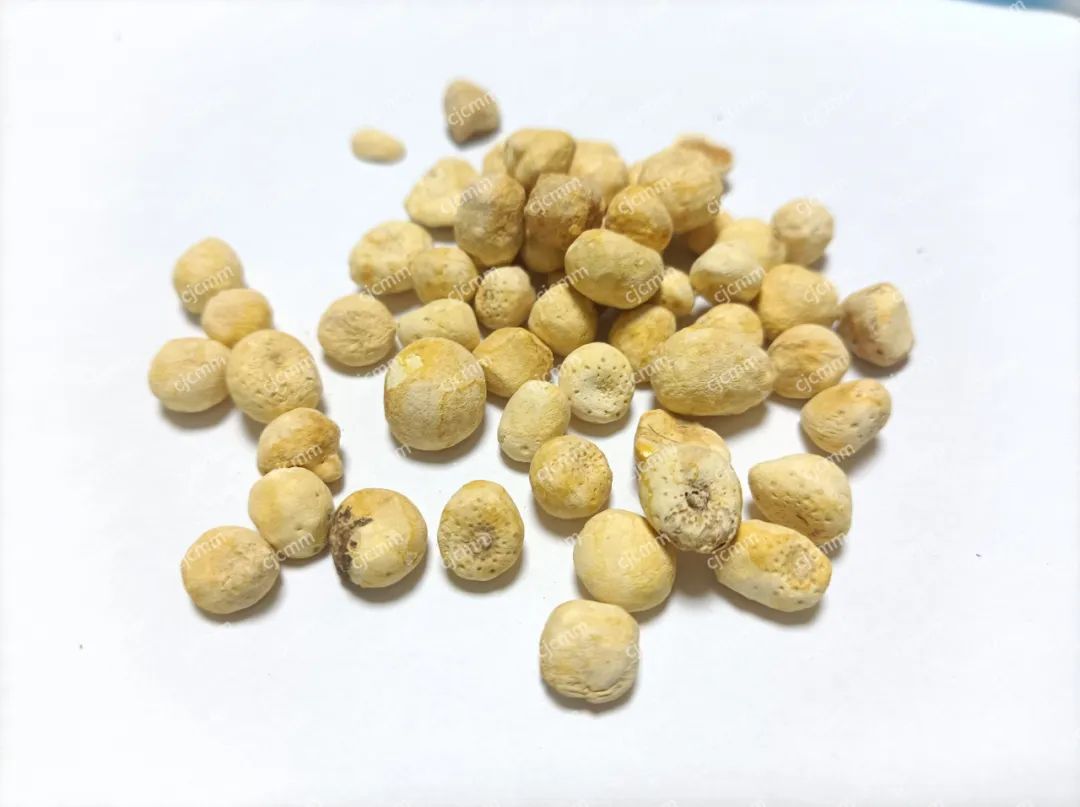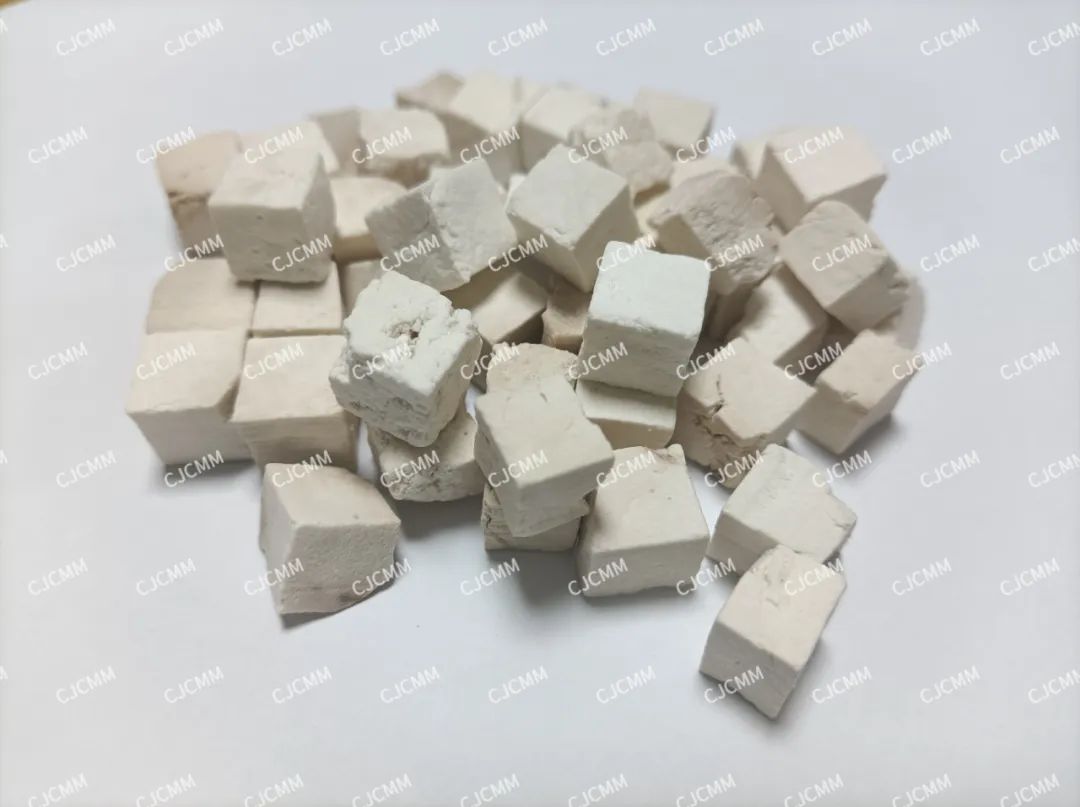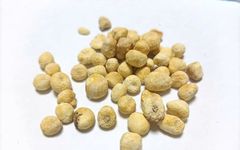 Author | Zhang Jingyi Editor | Chunfeng Reviewer | Xiao Ye
Author | Zhang Jingyi Editor | Chunfeng Reviewer | Xiao Ye
Recently, an uncle came to see me for treatment. He mentioned that he has been feeling dizzy and lightheaded, with everything around him spinning, occasionally accompanied by headaches. After taking many medications without improvement, he sought my help for some traditional Chinese medicine (TCM) to regulate his condition.
This uncle appeared overweight, with a soft and distended abdomen. He spoke with shortness of breath and seemed fatigued, sweating profusely.
Upon further observation, I noted that his tongue was pale red with tooth marks on the sides, and his pulse was weak. I diagnosed him with a phlegm-damp constitution, where the dizziness and headaches were due to spleen and stomach disharmony, leading to phlegm-damp accumulation.
After further differentiation, I prescribed Ban Xia Bai Zhu Tian Ma Tang (Pinellia, Atractylodes, and Gastrodia Decoction) to resolve phlegm, extinguish wind, strengthen the spleen, and eliminate dampness, treating his headaches and dizziness.


Ban Xia Bai Zhu Tian Ma Tang

Ban Xia Bai Zhu Tian Ma Tang is a formula from the “Earth Supplementation School” of Li Dongyuan. This formula is a phlegm-resolving agent that has the effects of transforming phlegm, extinguishing wind, strengthening the spleen, and eliminating dampness.
It is commonly used for conditions such as hypertension, dizziness, headaches, excessive sweating, and shortness of breath, provided the diagnosis is accurate.
The typical composition and dosages are as follows: Qing Ban Xia (12g), Tian Ma (9g), Fu Ling (9g), Ju Hong (9g), Bai Zhu (20g), Gan Cao (6g), a slice of Sheng Jiang (fresh ginger), and two Da Zao (dates), decocted in water for consumption.

In TCM, the organs correspond to the five elements, with the spleen and stomach belonging to the earth element. Therefore, the “Earth Supplementation School” often explains the causes of illness through the study of spleen and stomach functions, and treats diseases by adjusting these organs.
Vital energy protects the body; if it is damaged, illness will occur. Vital energy relies on the nourishment from stomach qi, so when the spleen and stomach are problematic, illness arises. Restoring spleen and stomach function can help return the body to normal.
Moreover, TCM believes that spleen deficiency leads to phlegm production. The spleen and stomach are crucial for the generation of qi and blood, and they serve as the “base” for phlegm and dampness.
When spleen qi is sufficient, it can control the transformation of water within the body. However, when the spleen and stomach are deficient, the spleen (earth) cannot control water.
If the spleen and stomach cannot regulate water, it will overflow within the body, gradually becoming dampness, which can transform into phlegm, leading to phlegm accumulation and illness.
Phlegm can be divided into two parts: the turbid, sticky, and thick portion, known as “phlegm,” and the clear, thin, and transparent portion, referred to as “fluid.”
Phlegm is further categorized into “visible phlegm” and “invisible phlegm.” Visible phlegm is what we can see in daily life, produced by the lungs, while invisible phlegm is not easily recognized, such as obesity, which is often seen in individuals with a phlegm-damp constitution.
The ingredients in the formula, such as Qing Ban Xia, Bai Zhu, and Fu Ling, work to strengthen the spleen, eliminate dampness, and regulate the spleen and stomach, thereby removing phlegm and fluids.
Since raw Ban Xia is toxic and can strongly irritate the mucous membranes of the throat, eyes, and gastrointestinal tract, it is commonly used in its processed form in clinical practice. There are many processed products of Ban Xia, such as Fa Ban Xia, Qing Ban Xia, and Jiang Ban Xia, each with specific therapeutic effects. In this formula, processed Qing Ban Xia is primarily used.
Qing Ban Xia focuses on drying dampness and transforming phlegm, commonly used for damp phlegm cough, stomach fullness, and phlegm accumulation that cannot be expectorated. This aligns with the formula’s function of strengthening the spleen and eliminating dampness, making it a key ingredient in Ban Xia Bai Zhu Tian Ma Tang.
Bai Zhu and Fu Ling are both TCM herbs that strengthen the spleen and eliminate dampness, often used together in clinical practice.

Bai Zhu has a bitter and sweet taste, is warm in nature, and belongs to the spleen and stomach meridians. It primarily has the effects of strengthening the spleen, benefiting qi, drying dampness, promoting urination, stopping sweating, and calming the fetus.
Fu Ling has a mild flavor, is neither cold nor hot, and is refreshing. Mild substances tend to descend, just like clear water always seeps downward. Therefore, Fu Ling can also help to drain clear and thin fluids downward, achieving the effect of strengthening the spleen and drying dampness.
Bai Zhu transforms the water and dampness that can be vaporized into body fluids for utilization, while Fu Ling helps to drain away waste water that cannot be vaporized. Thus, their combination is often used for strengthening the spleen, drying dampness, and addressing clinical symptoms such as spleen deficiency, reduced appetite, and phlegm accumulation leading to dizziness.
Dizziness often manifests clinically as lightheadedness, spinning sensations, and may even include symptoms like nausea, vomiting, and cold sweats.
In TCM, dizziness is often caused by wind movement and phlegm-dampness. Wind evil roams unpredictably within the body, and when it reaches the head, symptoms like dizziness, headaches, and numbness may occur.
Zhang Zhongjing believed that “phlegm and fluid in the heart” and “water and dampness in the diaphragm” are causes of dizziness. Under the push of qi, phlegm and fluids rise to the top, entering the brain and obscuring the brain orifices, leading to dizziness.
Tian Ma in the formula primarily serves to pacify liver yang and stop spasms.
Tian Ma has a neutral nature, is finely textured and plump, resembling a spindle beneath a kite, capable of firmly “settling” the excessive yang energy, hence its name “Ding Feng Cao” (Wind-Settling Herb).
The inclusion of Tian Ma in the formula is due to its ability to “calm yang energy” while also having a “tonifying” effect, balancing the liver without harming the spleen, making it suitable for those who are weak and mentally overworked, effectively treating dizziness caused by phlegm and fluids.
Ju Pi benefits qi and raises yang, while Gan Cao is sweet and moistening, which can tonify the middle and benefit qi, harmonizing the properties of the herbs, and Sheng Jiang expels internal cold.
The entire formula works to transform phlegm, extinguish wind, tonify the spleen, and dry dampness, leading to the resolution of dizziness and headaches.
The herbs selected for Ban Xia Bai Zhu Tian Ma Tang primarily belong to the spleen and stomach meridians, most of which have the effects of strengthening the spleen, transforming dampness, and tonifying the spleen and stomach.
Thus, this formula represents the academic thought of Li Dongyuan and is a representative formula for treating phlegm-damp diseases of the spleen and stomach, embodying the principles of the “Earth Supplementation School.”
Modifications: In clinical practice, if dizziness is severe, additional herbs such as Jiang Can (Silkworm) and Dan Nan Xing (Arisaema) can be added to enhance phlegm-resolving and wind-extinguishing effects for treating dizziness. For patients with severe headaches, herbs like Man Jing Zi (Vitex) and Bai Ji Li (Tribulus) can be added to dispel wind and relieve pain. For patients with qi deficiency, Dang Shen (Codonopsis) and Sheng Huang Qi (Astragalus) can be added to tonify qi.
Ban Xia Bai Zhu Tian Ma Tang is not only effective but also widely applicable in daily life.
▋Application
When applying Li Dongyuan’s Ban Xia Bai Zhu Tian Ma Tang, three conditions must be met: phlegm-damp constitution (overweight), signs of phlegm and fluids, and a wet tongue coating (white and moist).
In today’s fast-paced society, people often have irregular diets, favoring greasy foods, and experience imbalances between work and rest, compounded by mixed cold and heat, leading to spleen and stomach dysfunction. Consequently, the body’s fluids cannot be transformed, resulting in phlegm-damp accumulation. At this point, individuals may appear overweight, with a white and moist tongue coating, indicating a phlegm-damp constitution.
As phlegm and fluids rise, bodily blockages can lead to dizziness, headaches, and hypertension. These conditions are caused by phlegm and dampness, and Ban Xia Bai Zhu Tian Ma Tang can be used to transform phlegm, extinguish wind, strengthen the spleen, and treat these diseases.
Many TCM practitioners believe that phlegm and fluids are significant factors in causing hypertension, particularly prominent in hypertension with heart and kidney complications. If phlegm and fluids are not eliminated, blood pressure is difficult to lower, or it may drop and then rise again.
Therefore, using the spleen-strengthening and phlegm-transforming formula Ban Xia Bai Zhu Tian Ma Tang is an important measure for stabilizing blood pressure.
In modern clinical practice, Ban Xia Bai Zhu Tian Ma Tang is also widely used for various diseases primarily characterized by headaches or dizziness, such as hypertension, acute ischemic stroke, vertebrobasilar insufficiency, cervical vertigo, Meniere’s disease, and trigeminal neuralgia.
Additionally, it is essential to use this formula under the guidance of a physician to avoid adverse consequences from inappropriate use or dosage.
 The content of this article is for reference only and does not represent the views of this publication. Non-TCM professionals should not attempt to self-medicate;Submission email: [email protected] chunfeng52566(WeChat)
The content of this article is for reference only and does not represent the views of this publication. Non-TCM professionals should not attempt to self-medicate;Submission email: [email protected] chunfeng52566(WeChat)

